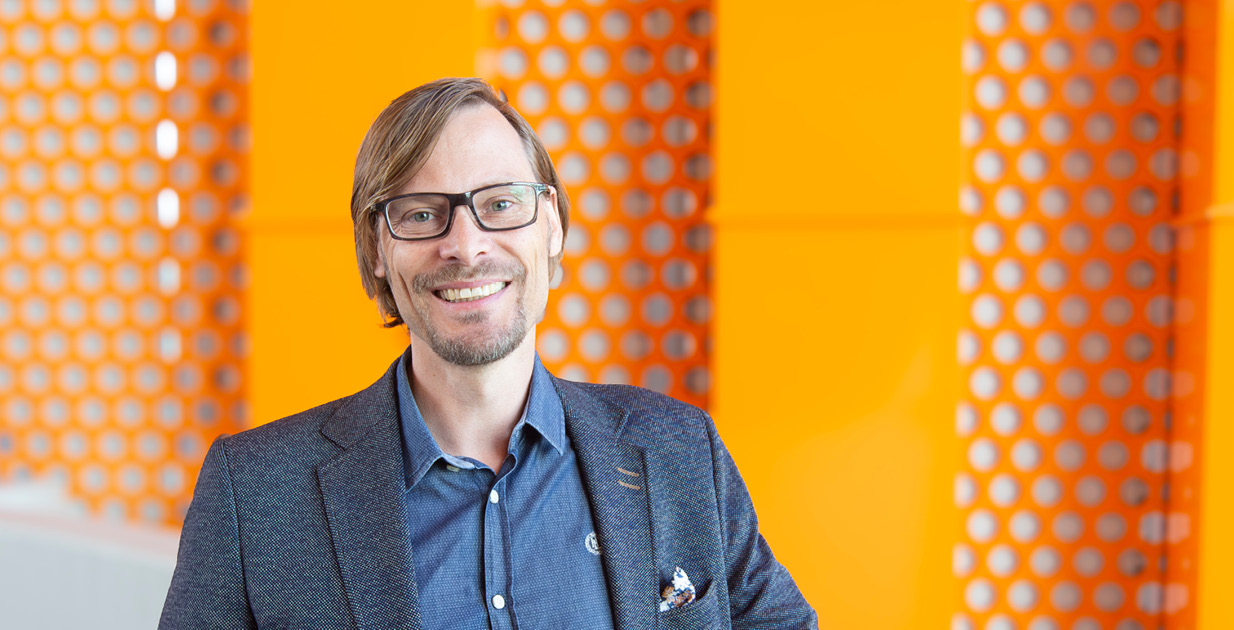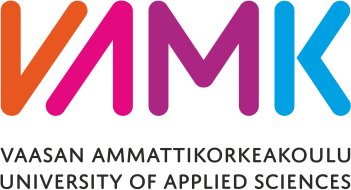
Hannu Vahtera, the new President of VAMK, emphasises the importance of pedagogy and collaboration with working life
The new President, CEO of Vaasa University of Applied Sciences, Hannu Vahtera, has extensive experience from both the corporate and higher education sectors, as well as from international business. Vahtera transitioned to VAMK from Haaga-Helia on August 1st. He views universities of applied sciences as key players in raising the overall educational level and in developing essential skills required by the working life.
Hannu Vahtera, Doctor of Science (Economics and Business Administration), started as the President and CEO of the University of Applied Sciences in the beginning of August. He brings diverse experience from both the corporate and higher education sectors with him, including operational roles and various development tasks, as well as international business across different industries.
“Throughout my career, I have worked for large international corporations as well as in the university and higher education field. However, this division has never been black and white, as my academic roles have always involved collaboration and various development activities with the business world,” Vahtera explains.
Vahtera’s former employers in the corporate sector include Nokia, Microsoft, Outotec, and Lindström, while in the higher education sector, he has worked at the universities of Jyväskylä and Turku, and most recently at Haaga-Helia University of Applied Sciences. At Haaga-Helia, Vahtera worked for six years, serving as both the Head of the research area called Entrepreneurship and Business Renewal and as the Director responsible for organising entrepreneurship education.
“In my opinion, integrating teaching with RDI work offers excellent opportunities for enhancing and updating one’s skills, as well as for developing pedagogy and engaging in agile experimentation,” Vahtera reflects.
According to Vahtera, combining teaching and RDI work provides added value not only for teachers but also for students.
“This combination, at its best, creates excellent opportunities, for example, through various assignments and project courses, to introduce students to the working life safely at different stages of their studies. It also enriches teaching and helps ensure that the skills being developed align with the changing needs of the job market. For universities of applied sciences, this is not only a legal obligation but, above all, an opportunity to make our work and the value we provide to the business community and society at large more visible.”
Universities of applied sciences play a crucial role in raising the overall educational level and developing skills
Vahtera views universities of applied sciences as key players in achieving the goal of increasing the general level of education and as essential contributors to building research, development, and innovation-based collaboration between industry and higher education institutions. He emphasises the importance of considering and reflecting on the potential impacts of various external developments on us and our operations
“Changes in the world and our operating environment continue, further highlighting the role of universities of applied sciences in producing the skills needed by the working life. In addition to individual degrees, universities of applied sciences support society by enabling continuous higher education learning at various stages of diverse career paths,” says Vahtera.
In Vahtera’s opinion, Vaasa University of Applied Sciences is well-positioned to meet the region’s skill needs.
“VAMK holds the keys to success in its own hands and has every opportunity to develop and grow along the path set by our vision of being ‘the main partner in expertise,’ in collaboration with various actors and networks. I believe that the fields of education we offer are fundamentally well-aligned with the skills and expertise needs of the the region’s business sector and also provide excellent opportunities to succeed in securing available RDI funding both domestically and internationally.”
Vahtera stresses the importance of all members of the work community considering how external developments affect us. He mentions examples such as major global megatrends, technological advancements, European-level matters following the start of the new Commission, and the Ministry of Education and Culture’s guidance at the threshold of a new contract period affecting the higher education sector domestically, as well as the positioning of other higher education institutions and the collaboration opportunities that arise from these.
“In the future, these developments will increasingly intertwine, and I expect that for universities of applied sciences, this will manifest as growing demands to build and implement impactful digital pedagogy and new accessible learning solutions,” Vahtera explains.
A diverse work community and clear strategy as key elements in building future expertise
Vahtera, accustomed to working in international environments with people from diverse backgrounds and cultures, has in practice observed how diversity and different ways of thinking and working enrich the operations of a work community.
“This is certainly a natural and sustainable foundation here in the Vaasa region and more broadly along the export coast, to build the knowledge, skills, and competencies required by the future workforce, as well as to create bridges between our students and local businesses,” Vahtera notes.
Regarding the smooth functioning of daily operations, Vahtera emphasises the importance of organisational culture and practices, as well as the role of leadership and supervisors.
“I believe in clear common goals and strategies where everyone understands the significance of their work to collective success. I think that a diverse work community, combined with its members’ motivation and a shared sense of purpose, competence, and diligence, are key factors for success. It’s also important to remember that success and failure are both part of working life. While repeating mistakes should generally be avoided, the value and significance of both successes and failures are crucial growth opportunities for the work community, workplace culture, and operational methods.”
Vahtera’s leadership style is largely based on trust. His fundamental approach is to assume that the work community operates to the best of its ability and expertise in striving to meet shared goals.
“Freedom and responsibility in carrying out tasks, as well as considering individual needs, are important. This means, for example, that I hope we take into account the different work roles, skills, and experiences within our community, so that we can provide the best possible learning environment for our students, meaningful work and a strong sense of community for all of us, and thus respond to the evolving needs of our students and the working world.”
Vahtera stresses that as a university of applied sciences, our core mission is centred around the new expertise required by the working life, diverse students, continuous learning, collaboration with the industry, and regional development.
“This requires us, in our daily work, to effectively support learning and, more broadly, the well-being of students. Here pedagogical expertise and its ongoing development are crucial. It demands that each of us take care of our own skills, and necessitates new, effective ways and channels to make our offerings accessible.”
Enthusiasm for interaction in everyday work
Born in Uusikaupunki, Vahtera has lived for nearly twenty years in Kaarina, near Turku.
“Due to my studies and previous jobs, I’ve had the opportunity to live abroad as well as in eastern, southern, and central Finland, but the southwestern coast is at least familiar and feels like home. I’m just beginning to get to know Vaasa better, but so far, the city has shown itself to be quite pleasant in the summer,” Vahtera shares.
During his first few weeks in Vaasa, Vahtera has already met many members of VAMK and its partners, with more meetings planned throughout the autumn.
“It’s great to be here, and I’m eagerly looking forward to the upcoming encounters and discussions. In these meetings with staff, students, and representatives from our various stakeholders, partners, and networks, I hope to hear and gain insights that will help me better understand the different perspectives that influence our daily work,” says Vahtera, extending his wishes for a pleasant and successful start to the academic year to everyone at VAMK.

